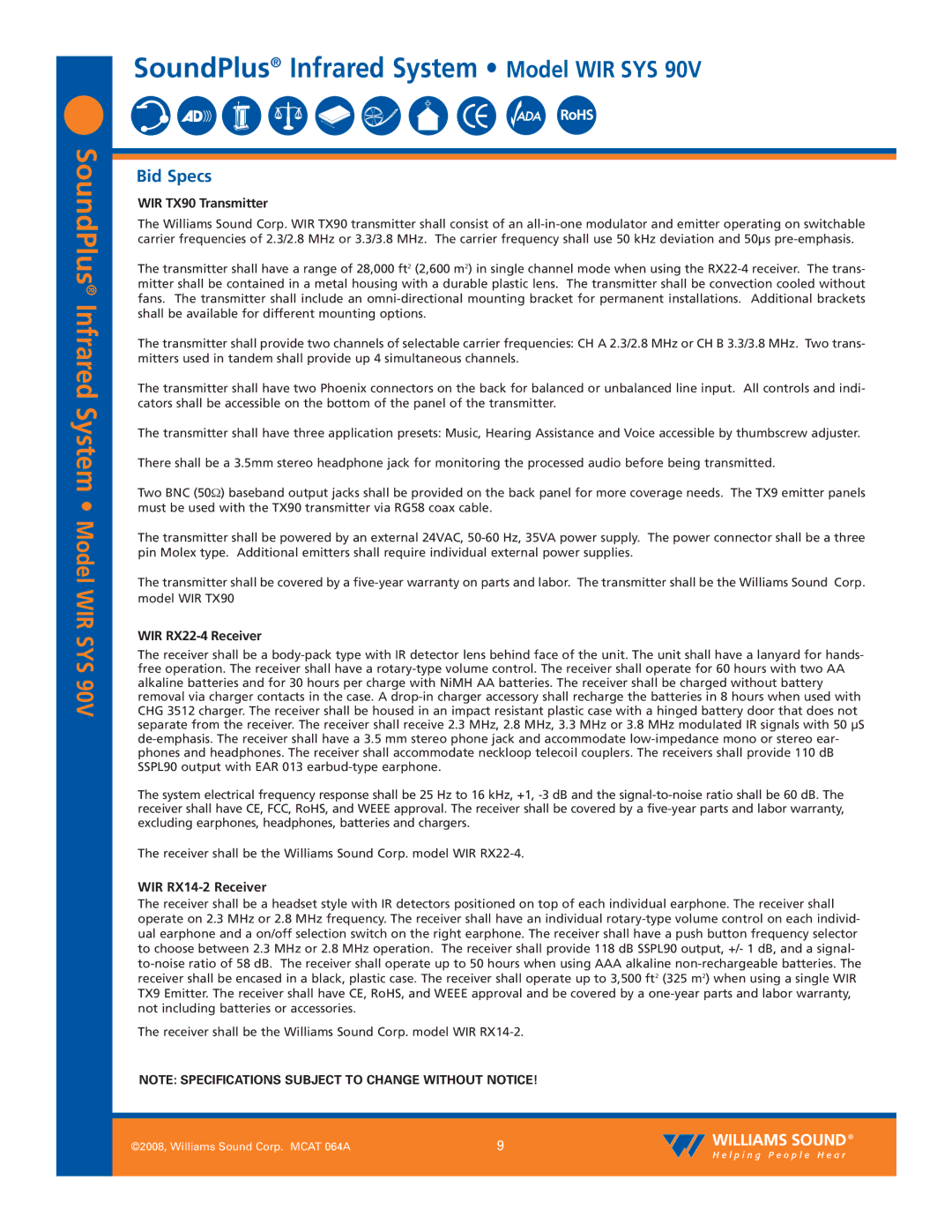WIR SYS 90V specifications
Williams Sound WIR SYS 90V is a versatile and advanced assistive listening system designed to enhance audio clarity and accessibility in various environments. This system is particularly beneficial for individuals who are hard of hearing, ensuring that they can fully engage in conversations, lectures, and performances.One of the main features of the WIR SYS 90V is its FM technology, which operates in the 72-76 MHz frequency range. This frequency range ensures minimal interference from other electronic devices and is compliant with legal regulations in many areas. The system includes a transmitter and multiple receiver units, allowing for a robust setup that caters to different settings, whether it be in theaters, classrooms, or even places of worship.
The WIR SYS 90V transmitter is designed with user-friendly controls, making it easy to adjust settings for optimal audio quality. It can connect to virtually any sound system via various input options, including microphone inputs and line-level connections. This flexibility allows the system to integrate seamlessly with existing audio setups, enhancing the listening experience without the need for extensive modifications.
The receivers included in the WIR SYS 90V package are lightweight and comfortable to wear, providing clear sound directly to the user without being obtrusive. They feature volume controls, allowing users to adjust sound levels according to their personal preferences. The system can support multiple receivers simultaneously, accommodating diverse audiences in need of assistive listening.
Another notable characteristic of the WIR SYS 90V is its compatibility with induction loop systems and hearing aids equipped with telecoils. This ensures that users with hearing aids can utilize the system effectively, expanding its accessibility.
The WIR SYS 90V is also built for durability, ensuring long-lasting performance under regular use. The transmitters and receivers are designed to withstand the rigors of different environments, making them ideal for both permanent installations and portable applications.
In conclusion, the Williams Sound WIR SYS 90V assistive listening system stands out with its advanced FM technology, user-friendly design, compatibility with hearing aids, and reliable performance. Whether for casual gatherings or large events, this system significantly enhances audio accessibility, ensuring that no one misses out on important spoken content.

